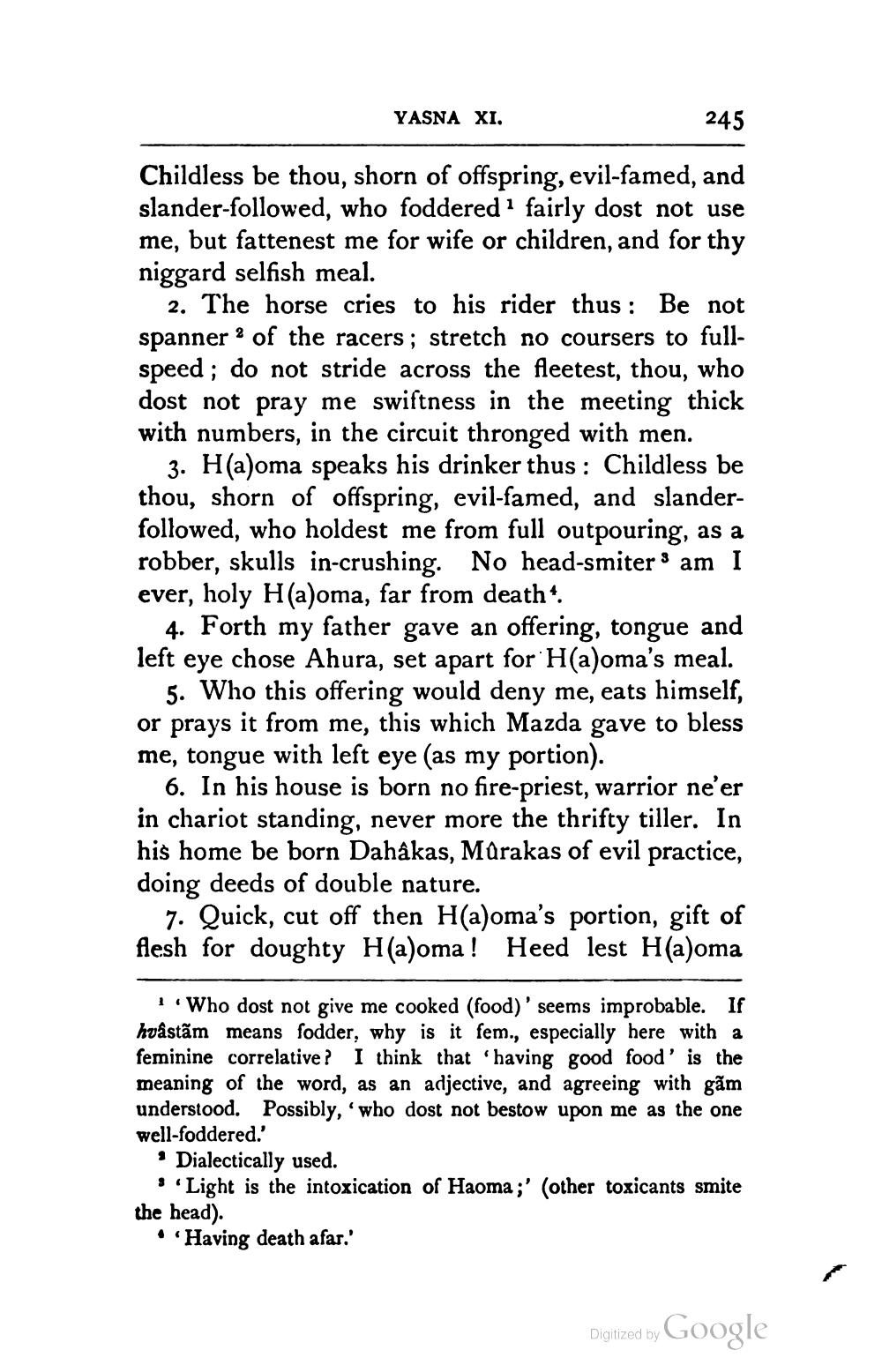________________
YASNA XI.
245
Childless be thou, shorn of offspring, evil-famed, and slander-followed, who foddered a fairly dost not use me, but fattenest me for wife or children, and for thy niggard selfish meal.
2. The horse cries to his rider thus: Be not spanner of the racers; stretch no coursers to fullspeed; do not stride across the fleetest, thou, who dost not pray me swiftness in the meeting thick with numbers, in the circuit thronged with men.
3. H(a)oma speaks his drinker thus : Childless be thou, shorn of offspring, evil-famed, and slanderfollowed, who holdest me from full outpouring, as a robber, skulls in-crushing. No head-smiter am I ever, holy H(a)oma, far from death 4.
4. Forth my father gave an offering, tongue and left eye chose Ahura, set apart for H(a)oma's meal.
5. Who this offering would deny me, eats himself, or prays it from me, this which Mazda gave to bless me, tongue with left eye (as my portion).
6. In his house is born no fire-priest, warrior ne'er in chariot standing, never more the thrifty tiller. In his home be born Dahâkas, Mūrakas of evil practice, doing deeds of double nature.
7. Quick, cut off then H(a)oma's portion, gift of flesh for doughty H(a)oma! Heed lest H(a)oma
1.Who dost not give me cooked (food)' seems improbable. If hvastãm means fodder, why is it fem., especially here with a feminine correlative? I think that having good food' is the meaning of the word, as an adjective, and agreeing with gãm understood. Possibly, 'who dost not bestow upon me as the one well-foddered.
* Dialectically used.
3 Light is the intoxication of Haoma;' (other toxicants smite the head).
• Having death afar.'
Digitized by
Digitized by Google




